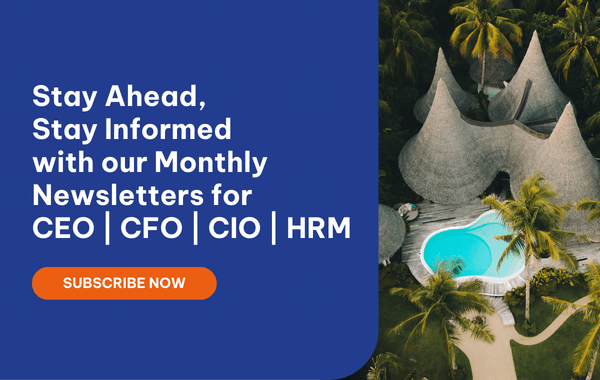According to Hospitality Technology’s “2016 Lodging Technology Study,” 62% of surveyed hoteliers use business intelligence (BI) tools and another 16% will add them within 18 months. Armed with the right information, today’s decision-makers can better understand risk, performance, and the impact of decisions at property, region and group levels. But how exactly can hotels achieve competitive advantages with business intelligence?

Is business intelligence worth the money?
Nucleus Research says analytics pays back $13.01 for every dollar spent, according to a September 2014 research note. Global analyst firm EY concurs that BI is becoming an essential part of the IT suite for hospitality companies.
“Leading hotel companies are leveraging advances in data analytics and artificial intelligence (AI) technologies to increase online reservations, improve the return on advertising spend (ROAS), better understand guest preferences and build stronger customer relationships,” according to EY’s 2015 Global Hospitality Insights report.
Hospitality organisations vary widely in their analytics maturity, and many are investing in solutions to improve their abilities. The right path forward, however, is not always clear. Many are overlooking opportunities to get more value from their BI investments.
Read more on the emergence of Business Intelligence
The following five best practices will enable hotels and restaurants to optimise their BI investments and maximize the value of BI across every aspect of their operations.
5 ways to gain competitive advantages with business intelligence in hospitality
1. Improve insight with rolling forecast
A key function of BI is to enable analysis of past performance, but this function’s value is greatly reduced by one simple fact: By the time users see the data and assess their progress, it’s usually too late to do anything to change the outcome, besides simply trying to make up for shortfalls in the following period.
Capturing organisational forecasts in the BI tool is a way to add a forward-looking component to this analysis and drive decisions that can impact the business right now. But if the forecasting process is manual and requires several rounds of consensus-building and approvals, it becomes too cumbersome to conduct the process and load the results more than once a month.
For most hospitality organisations, the revenue management system is dynamically reforecasting the business at least once daily, enhanced by prompt, thoughtful overrides from the key operator, to create a rolling forecast that the whole enterprise can leverage to ensure constant alignment with business objectives.
As it deploys Infor Dynamic Enterprise Performance Management (Infor d/EPM) across its 73 five-star hotels in 31 countries, Kempinski Hotels, Europe’s oldest luxury hotel group, is using Infor ION, Infor’s light middleware technology, to integrate with Kempinski financial systems, Infor EzRMS as well as other third party systems.
As a result, revenue management forecasts, as well as data from other sources such as finance, operations, reservations, demand and reputation systems, are sent automatically to Infor d/EPM, eliminating the data consolidation process previously run manually once a month. Kempinski’s visibility is enhanced with forward-looking data that enhances decision-making across the organisation.'
Read more: A General Look at Infor d/EPM Hospitality

2. Avoid data blindspots
Sometimes integration hurdles stall progress, such as when internal and third party data structure differences must be resolved, and IT doesn’t have time to address it.
Another common issue is that for systems that are currently integrated into the BI suite, the frequency of data updates may not be aligned with user needs. Perhaps an early morning re-fresh of a group reservations forecast isn’t early morning enough for those charged with creating orders for fresh caught seafood or supervisors who need to make staffing adjustments if customer segmentation is not aligning with the forecast.
All of this prevents operators from getting a complete picture of the business. Without an end-to-end visibility, managers and executives are mak-ing decisions in a vacuum. A flexible BI tool with strong integration capa-bilities enables operators to get a com-plete and accurate view of the busi-ness at the right cadence to support decision making.
Read more: Networked Analytics - the Next Wave of Business Intelligence
3. Focus on distribution/OTA and third-party reservations
As they evolve, the revenue models maintained by third party distribution systems such as travel or restaurant reservation sites tend to grow increasingly complex and, by all indications, they will continue to be in a constant state of change.
As a result, it can be difficult for hospitality organisations to know the true cost of these services. That not only puts the hospitality organisation at a disadvantage when negotiating future terms with the distribution/ reservation company, but is usually a sure sign that the hotel’s mix of business is coming at too high a cost.
The solution to these challenges lies in choosing a BI/analytics tool that comes preconfigured with the more common distribution models already supported, so it can immediately capture the correct data and apply the appropriate analytics. The tool must also offer the flexibility to be easily reconfigured as revenue models inevitably change.
Read more: 5 tips to boost hotel direct revenue
4. Leverage BI to pursue Enterprise Optimisation
The basic definition of Enterprise Optimisation is to apply revenue management concepts to other facets of hotel or restaurant operations - not only optimising ancillary revenue streams such as spa or golf, but also addressing any input, output, or business practice which can be made to yield a better result by applying analytics, such as workforce planning or food purchasing.
Enterprise Optimisation can apply this rigor where business practices may not have much influence over top-line revenue, but can still have a major impact on profitability, such as how individual departments schedule staff and order supplies. These costs can easily cut into profit margins if not properly aligned with business levels.
For example, a parking manager wary of angry feedback about delays who overstaffs despite the payroll costs, or a bar manager who under-staffs on a busy night to drive up his share of tips, are both acting without visibility into the overall business impact of their decisions.
Enterprise Optimisation entails set-ting up processes and configuring tools such as user-friendly mobile BI apps and in-context BI to automatically de-liver the appropriate insights to those best able to leverage them just as they are making key decisions.
Democratising data enables users to make decisions that work not just for the department or process at hand, but that align with overall enterprise goals.
5. Move to the cloud
After years of fierce independence, a groundswell of owners and management companies are embracing shared IT environments as a way to reduce cost and complexity. InterContinental Hotels Group, for example, unveiled its IHG marketplace as a one-stop shop for its owners and operators to buy technology and other services.
The cloud facilitates these shared environments by providing the enterprise with both local and remote access to BI. It also puts powerful functionality within reach of even the smallest organisations.
It’s important that the BI provider offer a strong, hospitality-specific, configurable and highly secure software-as-a-service cloud infrastructure to support this.
In the age of analytics, the ability to do more with data is paramount. In hospitality, where data analysis has long been confined to limited areas and selected staff, those that embrace BI and analytics’ full potential stand to gain significant competitive advantage through optimised operations and standout guest experiences.
 English
English  Vietnamese
Vietnamese 


